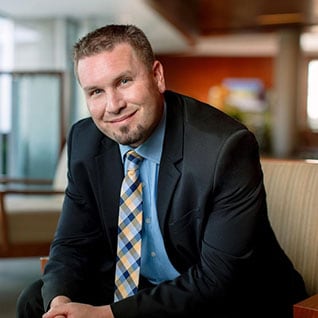Meet The Faculty
In addition to caring for patients in clinical practice, Mayo Clinic's faculty is committed to teaching and facilitating your growth as a neurosurgeon. Many of our faculty members have published and lectured extensively and are highly regarded in their fields. You work closely with these individuals throughout your training in the Neurosurgical International Fellowship.
From the program director
 Mayo Clinic was one of the earliest institutions to offer subspecialization in neurosurgery, beginning at the turn of the century with Charles H. Mayo, M.D., and Emil H. Beckman, M.D. In 1919, the Section of Neurologic Surgery was established with Alfred Adson, M.D., as its first chair. Subsequently, Drs. Winchell (Wink) McK. Craig, J. Grafton Love, Collin MacCarty, Ross Miller, Thoralf Sundt Jr., David Piepgras, Fredric Meyer, and Robert Spinner followed as eminent chairmen.
Mayo Clinic was one of the earliest institutions to offer subspecialization in neurosurgery, beginning at the turn of the century with Charles H. Mayo, M.D., and Emil H. Beckman, M.D. In 1919, the Section of Neurologic Surgery was established with Alfred Adson, M.D., as its first chair. Subsequently, Drs. Winchell (Wink) McK. Craig, J. Grafton Love, Collin MacCarty, Ross Miller, Thoralf Sundt Jr., David Piepgras, Fredric Meyer, and Robert Spinner followed as eminent chairmen.
Now under the leadership of Gelareh Zadeh, M..D., Ph.D., the Department of Neurologic Surgery exists as one of the largest practices in North America, covering all subspecialties in neurosurgery each year with a staff of 22 neurosurgeons.
Mayo Clinic has long been a leader in education, and it exists as the largest graduate medical institution in the country. Given its unique position with multiple sites across the country and large practice volume, trainees benefit from opportunities that are unavailable at any other institution. Further, education exists as one of Mayo Clinic's core values and is supported throughout the institution.
Therefore, we look forward to your visiting and hopefully receiving training as a fellow in our fine program.
Jamie Van Gompel, M.D., FAANS
Neurological International Fellowship Director
Department
The Department of Neurosurgery at Mayo Clinic is one of the largest in the United States. Each year, the entire spectrum of neurosurgical conditions and diseases is treated essentially at one site, which ensures an unparalleled training experience.
Many cases are straightforward neurosurgical problems, which include brain tumors, cerebral aneurysms, and spinal disease. This allows neurosurgical trainees to become skilled in the management of typical neurosurgical problems.
However, many complex cases are nationally or internationally referred to Mayo Clinic neurologists and neurosurgeons for evaluation and treatment. These difficult cases often require a multidisciplinary team approach to patient care, which broadens the educational opportunities for trainees.
Surgical volume
The average neurosurgical caseload at Mayo Clinic in Rochester, Minnesota, is approximately 5,000 major operations a year at one hospital, including:
- 860 operations for brain tumor
- 175 operations for trauma
- 325 operations for vascular diseases, including aneurysm, arteriovenous malformation (AVM), carotid and bypass
- 175 transsphenoidal operations
- 400 operations for functional disorders like epilepsy, movement, and pain
- 325 peripheral nerve procedures
- 150 endovascular procedures
- 1,350 spinal procedures, including 140 for intraspinal tumor and 350 cases of complex spinal disease involving instrumentation
- Average chief resident operative caseload is approximately 450 operations a year
The cumulative case volume at Mayo Clinic's campuses in Florida and Arizona available for training is approximately 3,500 cases.
Skills laboratories
Mayo Clinic neurosurgery trainees have access to several state-of-the-art skills labs for refinement of their techniques outside the operating room. These include cadaveric labs with full endoscopic and microscopic support, a rat-based microvascular anastomosis lab, and a microsurgical dry lab within the resident work area at Mayo Clinic Hospital — Rochester, Saint Marys Campus, our main teaching hospital.
Additionally, four formal courses on open skull base techniques, endoscopic skull base techniques, microvascular anastomoses, and peripheral nerve surgery are completed by trainees, with further opportunities for formal instruction available to those interested.
Advisers and mentors
Mentors are expected to give close attention to your goals, objectives, and spectrum of operative experience throughout the training program. Your mentor can also help you choose a research project, give guidance about post-training career planning and serve as an advocate in post-training placement.
Annual meetings are arranged between each trainee and the department chair to provide another mentoring perspective, individualize your training program, and discuss options for advanced subspecialty training pertaining to career and professional aspirations.
Visiting professors
Many prominent professors visit Mayo Clinic each year. They present their work during lectures and participate in hospital rounds. These visits are scheduled to include time for informal interaction between the visitor and trainees.